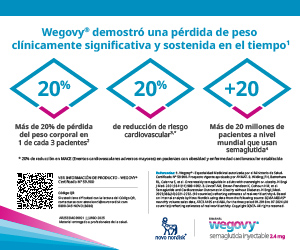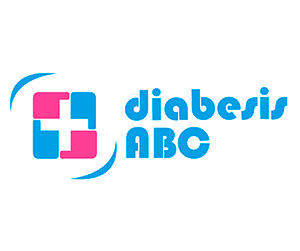Simposio: Abordaje terapéutico. Cirugía bariátrica y célula beta
DOI:
https://doi.org/10.47196/diab.v55i3Sup.504Palabras clave:
diabetes, cirugía bariátricaResumen
Múltiples estudios realizados en pacientes con obesidad que se sometieron a cirugía bariátrica (CB) -tanto con la técnica de by pass gástrico, derivación biliopancreática con switch duodenal o gastrectomía vertical (manga gástrica)- demostraron remisión de diabetes (DM). Las explicaciones para justificar dichas modificaciones beneficiosas incluyen el incremento de GLP-1 y GIP posintervención, el descenso de peso con disminución de tejido adiposo con modificaciones de citoquinas proinflamatorias, la disminución de ghrelina, el aumento de la insulinosensibilidad y el impacto de los ácidos biliares.
Teniendo en cuenta el rol protagónico de la célula beta para mantener la normoglucemia, se realizó un estudio randomizado exponiendo suero de pacientes con obesidad y DM que fueron sometidos a CB (gastrectomía vertical) en un cultivo de células beta comparándolo con suero de pacientes con tratamiento convencional.
En las células beta expuestas a suero de pacientes con CB se observó aumento en la viabilidad y proliferación celular, disminución de las especies reactivas del oxígeno y del p53, aumento de la expresión de proteínas relacionadas con autofagia, SIRT1 y p62/SQSTM1, reducción significativa de marcadores de estrés del retículo endotelial e incremento de la expresión de insulina. A los seis meses de la cirugía los pacientes lograron buen control de la DM, mientras no lo lograron aquellos bajo tratamiento convencional. Esto implica que factores circulantes en pacientes con mejor control metabólico pos-CB ejercen un efecto favorable en la función y sobrevida de la célula beta.
Citas
I. Constantin A, et al. Sera of obese type 2 diabetic patients undergoing metabolic surgery instead of conventional treatment exert beneficial effects on beta cell survival and function: results of a randomized clinical study. Obesity surgery 2019; 29(5):1585-1497.
II. Pories W, Dohm G. Letter to the editor: Sera of obese type 2 diabetic patients undergoing metabolic surgery instead of conventional treatment exert beneficial effects on beta cell survival and function: results of a randomized clinical study. Obesity surgery 2020; 30(9):3603-3604.
III. Jans A. Duration of type 2 diabetes and remission rates after bariatric surgery in Sweden 2007-2015: A registry-based cohort study. PLoS M.2019 Nov 20;16(11).
IV. Russel SM, et al. Physiologic mechanisms of type II diabetes mellitus remission following bariatric surgery: a meta-analysis and clinical implications. Journal of Gastrointestinal Surgery 2020 Mar;24(3):728-741.
Descargas
Publicado
Cómo citar
Número
Sección
Licencia
Derechos de autor 2021 a nombre de los autores. Derechos de reproducción: Sociedad Argentina de Diabetes.

Esta obra está bajo una licencia internacional Creative Commons Atribución-NoComercial-SinDerivadas 4.0.
Dirección Nacional de Derecho de Autor, Exp. N° 5.333.129. Instituto Nacional de la Propiedad Industrial, Marca «Revista de la Sociedad Argentina de Diabetes - Asociación Civil» N° de concesión 2.605.405 y N° de disposición 1.404/13.
La Revista de la SAD está licenciada bajo Licencia Creative Commons Atribución – No Comercial – Sin Obra Derivada 4.0 Internacional.
Por otra parte, la Revista SAD permite que los autores mantengan los derechos de autor sin restricciones.





































